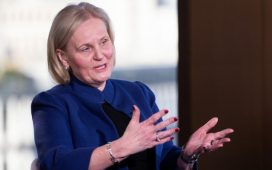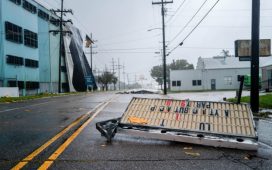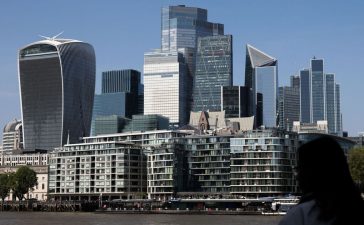Unlock the Editor’s Digest for free
Roula Khalaf, Editor of the FT, selects her favourite stories in this weekly newsletter.
UK home insurance prices are expected to rise by more than a third over the next two years, according to a new forecast, as insurers respond to their worst year for underwriting in decades by pushing premiums yet higher.
Swings in weather, high inflation and strained supply chains all combined to drive up home insurers’ losses last year. The sector posted a net combined ratio — a measure of claims and expenses as a proportion of premiums — at a lossmaking 122 per cent, according to figures from consultancy EY. It was the worst period of trading in data stretching back 30 years, it said.
In response, the consultancy expects home insurance prices to rise by 36 per cent over the two-year period. That is set to add to pressure for households with the average policy already a tenth more expensive than it was last year.
Rodney Bonnard, UK financial services market leader at EY, said insurers lifting their prices were responding to a combination of surging rebuild costs, higher reinsurance prices and rising salary bills.
“It really does create a very difficult environment for insurers where they are having to recover all of these costs,” he said. “The only place they can recover them from is ultimately the consumer.”
EY expects that the sector will remain lossmaking this year and next, as inflationary effects and a rise in claims frequency continue to squeeze margins. It forecasts a sector-wide net combined ratio of 114 per cent this year, and 104 per cent in 2024, as insurers put up premiums to keep pace with the cost of claims. Any ratio above 100 per cent represents an underwriting loss.
The home insurance industry has also been affected by pricing regulations put in place at the beginning of last year, which stamped out the practice of so-called price walking, where renewing customers would be hit with increases in their premiums above what a new customer would pay.
A tracker provided by the Association of British Insurers, a trade body, said the average annual home insurance policy — covering building and contents — in the second quarter was £329, up 10 per cent on the same period the previous year.
By contrast, the amount paid in claims during the quarter was up 11 per cent, as insurers paid out to cover fire, theft, weather, water leaks, and other events. There was also a jump in subsidence payouts, a legacy from last year’s heatwave.
Matthew Wheatley, an actuarial partner at EY, said a reassessment of long-term profitability after the pricing reforms, and the difficulty of predicting longer run losses from weather in an environment of global warming, were making some insurers reassess their presence in the market. “A few people are thinking . . . is this an area we want to play in?”
The ABI said last month that insurers were “doing all they can to offer competitively priced cover to UK households”. Car insurance prices, meanwhile are at an all-time high due to soaring costs for parts, second-hand cars and labour.
Home insurer executives “are in the eye of the storm themselves, in terms of managing this”, Bonnard said. “I think they are hoping the storm will quieten as rates come through, their profitability stabilises and we’ll be back to [price increases] that are much more closely linked to inflation.”











